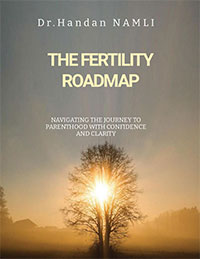Doctor Explains 8 Early Pregnancy Signs Before Missed Period
Early pregnancy signs before missed period are often subtle yet surprisingly noticeable if you know what to look for. Many women wait until a missed period to take a test, but your body might be sending signals much earlier. In this article, we’ll cover 8 surprising early pregnancy symptoms that may appear before you see that faint positive line.
Table of Contents
-
Introduction: Early Pregnancy Signs Before Missed Period
-
Sign #1: Food Aversions & Cravings
-
Sign #2: Extreme Fatigue
-
Sign #3: Implantation Bleeding & Cramping
-
Sign #4: Breast Changes
-
Sign #5: Morning Sickness Anytime
-
Sign #6: Emotional Sensitivity
-
Sign #7: Increased Urination (The Overlooked Sign)
-
Sign #8: Early Pregnancy Bloating
-
Testing and Next Steps
-
FAQ on Early Pregnancy Signs Before Missed Period
-
Conclusion & Helpful Resources
Introduction: Early Pregnancy Signs Before Missed Period
Many women are surprised to discover that early pregnancy signs before missed period can appear within days of conception. From sudden food aversions to unexplained fatigue, these subtle changes can give you an early clue that your body is preparing for pregnancy.
Sign #1: Food Aversions & Cravings
One of the earliest early pregnancy signs before missed period is a sudden change in taste or smell preferences. Coffee might suddenly make you nauseous, or you could start craving foods you never enjoyed before.
Tip: Track unusual reactions to food in a journal—it could help you spot pregnancy before your period is due.
Sign #2: Extreme Fatigue
Pregnancy fatigue feels different from regular tiredness. It’s a deep exhaustion that doesn’t go away, even after long sleep. This is one of the most commonly reported early pregnancy signs before missed period because your body is already producing more blood to support the embryo.
Sign #3: Implantation Bleeding & Cramping
Implantation bleeding occurs 6–12 days after conception. Unlike a regular period, it’s usually light, pink or brown, and doesn’t last long. Paired with mild cramps, this is a classic early pregnancy sign before missed period.
Sign #4: Breast Changes
Your breasts often “know” before you do. Heaviness, tingling, visible veins, and darker areolas are frequent early pregnancy signs before missed period. If your bras suddenly feel uncomfortable, this could be your body’s first signal.
Sign #5: Morning Sickness Anytime
Nausea doesn’t just strike in the morning. For some women, it starts as early as 2–3 weeks post-conception and can appear at any time of day. This queasy feeling is one of the most famous early pregnancy signs before missed period.
Sign #6: Emotional Sensitivity
Pregnancy hormones heighten emotional responses, making even small things feel overwhelming. Many women report “emotions in HD” as an unmistakable early pregnancy sign before missed period.
Sign #7: Increased Urination (The Overlooked Sign)
One of the most overlooked early pregnancy signs before missed period is frequent urination. This happens not because of uterus size, but because hormones increase kidney filtration. If you find yourself waking up at night to pee more often, take note.
Sign #8: Early Pregnancy Bloating
Bloating that starts low in the abdomen, feels firmer, and doesn’t improve after bowel movements is a specific early pregnancy sign before missed period. Progesterone slows digestion, leading to this common symptom.
Testing and Next Steps
Modern home pregnancy tests can detect pregnancy several days before your missed period.
Test with first morning urine
Use “early detection” tests for better accuracy
Retest in 2–3 days if symptoms continue but test is negative
FAQ on Early Pregnancy Signs Before Missed Period
How soon can pregnancy symptoms appear?
Some women notice signs as early as 3–4 days after conception.
Which sign is most common?
Fatigue and breast tenderness are usually the first reported early pregnancy signs before missed period.
Can you be pregnant with a negative test?
Yes. hCG levels may be too low early on, so retesting later is recommended.
Conclusion & Helpful Resources
Recognizing early pregnancy signs before missed period can help you connect with your body’s signals sooner and prepare for the journey ahead. Every woman’s experience is unique, but paying attention to these early changes can give you valuable insight.
For more medical guidance, you can explore trusted sources like Mayo Clinic and Healthline.
Related article: First Trimester Care Guide

